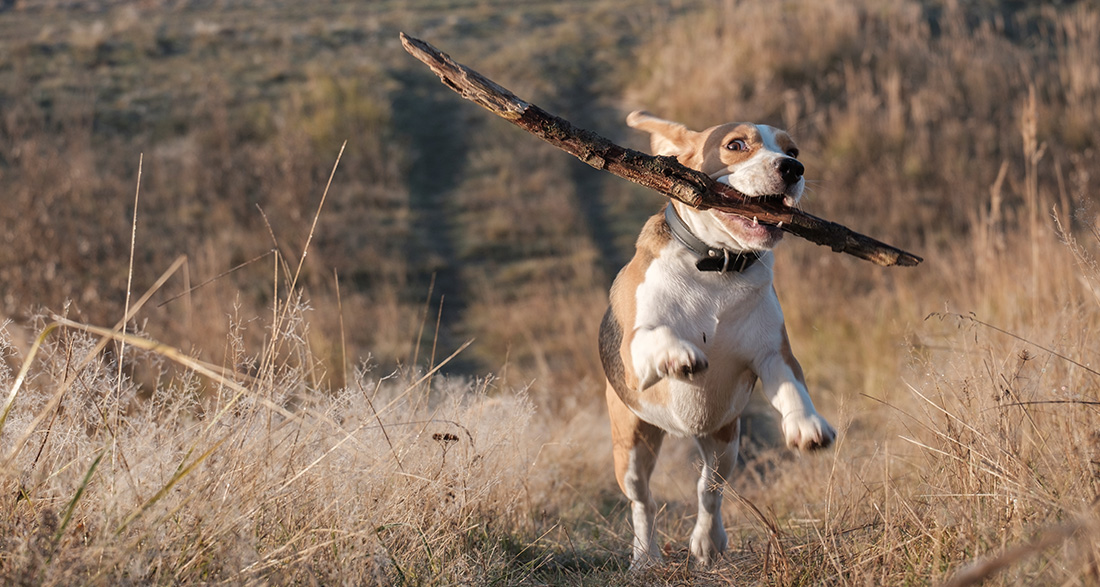When the hunting instinct in a dog is unleashed, there’s no stopping it. Preventing your dog from hunting is undoubtedly the most challenging aspect of dog training. Hunting behavior is the most natural thing in the world for dogs; it’s ingrained in them. Once this instinct awakens, it puts your dog in a kind of frenzy.
It triggers feelings of joy in your dog, and he naturally wants to experience them repeatedly. Depending on the breed, your canine friend’s hunting desire can be more or less pronounced. Therefore, as a responsible owner, you can guide the genetically ingrained drive through consistent training and permanent practice, but you cannot completely suppress it.
Hunting Instinct in Dogs – woe when it’s unleashed…
Perhaps you’ve experienced it yourself: your dog was peacefully walking beside you on the forest path, and suddenly, he pauses, catches a scent, rushes off, and disappears into the undergrowth. Once the hunting fever takes hold, all calling and whistling are in vain.
You helplessly remain behind, filled with concern and the fear that your otherwise peaceful companion is chasing a fawn or catching a rabbit. Add to this the worry that he might not stop at the next busy road during his pursuit, potentially causing an accident that could harm your dog, the hunted fawn, or even drivers.
Opportunity makes the hunter
Every chase is one too many. Even if the “chase” seems harmless because your four-legged friend often returns to you after a short time without much hunting success, it poses a real danger to a fawn. If startled, separated from its mother, and chased to death, a fawn faces real peril.
Dog ownership is also about responsibility, not only to your own dog but also to all people and wild animals. The more frequently your dog goes “off the path,” the harder it will be for you as an owner to regain control of this behavior.
Prevention is better than cure: Anti-Hunting Training
Ideally, set a goal to control your dog’s hunting instinct. There are already many books on this topic that offer tips and exercises that you can easily integrate into your daily routine with your dog and during walks. If you want individual and targeted support for you and your dog, you can find trained dog trainers or hunting dog handlers in dog schools who specialize in anti-hunting training.
Since the hunting behavior varies in intensity among dogs, it may be worthwhile to invest in private lessons or individual sessions. This way, your trainer can work with you and your dog to practice recalls in critical areas in the forest and your surroundings. Through these exercises, you will learn to intervene in hazardous situations at any time and pull your dog out of his hunting mood.
Prevention is the key in the daily life of dogs
Regularly practice commands and recall exercises with your dog—even without a specific reason or impending danger. This way, you both can become a well-coordinated team. With these contact games, you’ll be able to build such a strong bond with your dog that he will listen to you even in challenging situations.
Knowing your dog well and being able to “read” him puts you a step ahead. You can recall him in time when you recognize the initial signs of impending hunting behavior, such as stopping and sniffing with a high nose. Following the motto “Danger recognized, danger averted” benefits not only squirrels, ducks, and wild animals but also joggers and cyclists in the forest.


